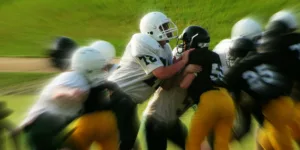While there is a lot you can do to motivate players, there is no better way to do so than by rewarding them for hard work. Athletes are expected to train hard and take their team to the highest level. As a football coach, you understand how sports work, what makes the team players work hard and what they need to win.
But what do you do when they are losing? It is your responsibility as their leader to help them cope with the pressure of expectations. This way, they will be able to maintain their confidence. While motivating your team might sound like the most challenging task to do, here are some effective strategies.
Trophies and Awards
Everyone dreams of winning a medal or prize at some point in life, especially with younger players who are grasping onto the idea of how teamwork can lead to larger rewards, like school district titles or trophies displayed for their peers to see and add to the history of their team’s legacy. You do not have to wait until they make a big win to give them a trophy—participation trophies are a great way of showing your team that everything they do counts, that their efforts are appreciated and that they are headed in the right direction. You can have a football trophy for the MVP of the season, the specific position (defense, offense) and trophies for character aspects (like “most improved”) alongside trophies or medals for general participation.
Of course, trophies are a considerable investment. You need to invest in trophy and award categories that make sense versus trying to come up with new categories every year. You may consider having a larger trophy made with smaller plaques added each year with the recipient’s name instead of an individual trophy for someone to keep. With trophies that gather the history of the “best of the best,” you give your team something to strive for: seeing their name among the greats.
Appreciate Small Wins
The worst mistake you could make as a coach is to put too much pressure on your players. As much as we all want to win big, sometimes the desire to reach a larger goal such as winning a league title could make the players cave under too much pressure. It is your responsibility to show them that even the little wins count, like pre-season wins to build momentum toward the season. Notice the wins in practice, too, since small successes make for confidence and understanding when entering the game.
Declare Your Team’s Purpose
What are a team’s values? Yes, hard work and dedication are obvious, but what are the underlying motives of each individual to be a part of a team? Getting to know your team members individually allows you to gain a sense of their purpose, which can lead toward a joint, common effort among all of them. You may bring in elements of your school or league’s anthem and values to ground the team at the beginning of the season but be willing to adapt and show that teams are about listening to each other and finding ways to win together.
Create a Conducive Environment
Igniting motivation in your players starts right from the moment they meet you. Players should feel at ease and comfortable around you and their peers. Part of your job is creating a positive and comfortable environment around the training facilities. Make sure all training equipment is in proper working order, and that there is a clear line of communication about what players need to bring with them and wear for training.
Creating a positive environment also means interacting with the players positively. Recognize when you need to be strict, but also realize when players are expressing themselves while working hard. For some players, depending on the age group, this is their only time to interact with friends and make vital connections, which will be important for a team mentality. Have meetings with your team about how practice and games seem to be going—that way, you create open communication versus a “coach vs. team” viewpoint.
Encourage Healthy Competition
Think of your school days: It was all about competition, and every student was working hard to emerge on top. Competition—healthy competition—is the center of success. Do not make games all about the large win—the team may already feel deflated for losing. Instead, look at what makes a winner’s mentality: What did the team bring to that particular game? What could they have done better? When you empower your team to think of competition as “me versus myself” and what they are bringing to the team, it creates more accountability and allows for growth.
With these tips, you will undoubtedly be in a position to produce the best team possible, one that is motivated and has the groundwork to create a real team mentality that, with all that hard work and dedication, can really benefit from coming together and finding wins throughout the season.
Written by: Ruben Denton








